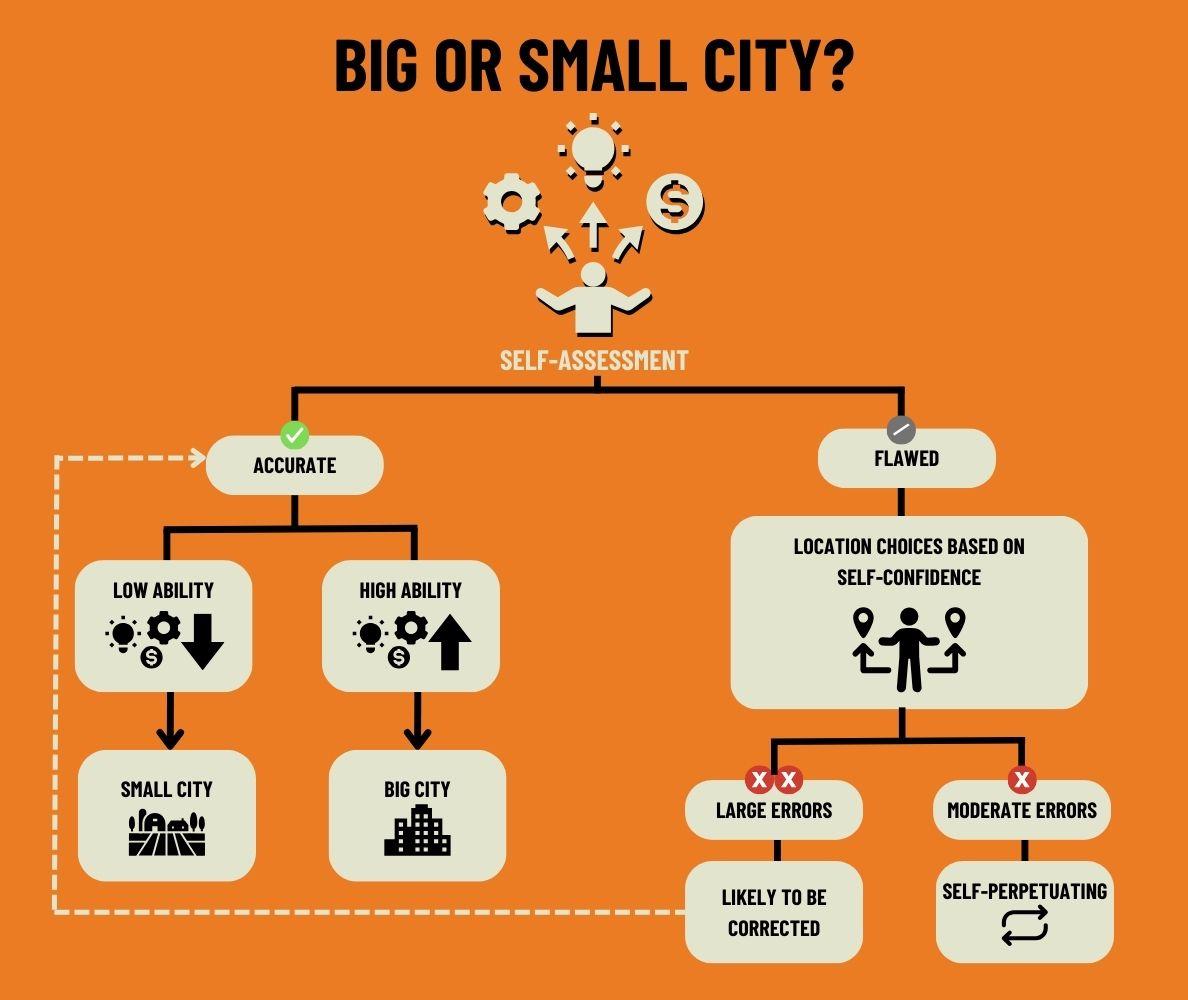
The Bold, not the Capable, Make the Most of Big Cities
SELF CONFIDENCE, AND NOT NECESSARILY ABILITY, DRIVES YOUNG WORKERS TO LOCATE IN A BIG CITY, ACCORDING TO ANALYSIS BY OTTAVIANO, DE LA ROCA AND PUGA. WITH NEGATIVE, LONGTERM CONSEQUENCES FOR THOSE WHO SETTLE FOR SMALL CITIES BECAUSE OF INACCURATE SELF ASSESSMENTBig cities make us dream. After all, in big cities we can find the best jobs, the most compelling experiences, and the most exciting opportunities. But at a cost: literally, at higher housing and living costs, only affordable by those able to secure the best jobs and the highest salaries. Economists would thus expect a strong self-selection based on one’s ability – only the most able, the argument goes, should choose to live in a big city, because they are the ones with the best chances to earn the money needed to enjoy city life. In reality however, such a stark self-selection is not observable in the data.
Gianmarco Ottaviano, Professor of Economics and Achille and Giulia Boroli Chair in European Studies at Bocconi, in a paper with Jorge De la Roca (University of Southern California) and Diego Puga (CEMFI), argues that self-confidence, and not necessarily ability, is the main driver of location decisions for young workers. As in a self-fulfilling prophecy, those who choose to live in a big city live more valuable learning experiences that often allow them to aspire to the best jobs and to remain in a big city.

Infographic by Weiwei Chen
Ability, on the contrary, is the main driver of relocation for senior workers, but the lasting impact of earlier choices dampens their incentives to move. Only those who wildly under-assessed their ability tend to move from a small to a big city later in life.
The authors exploit the possibility to follow through life 6,111 Americans who were administered both the National Longitudinal Survey of Youth 1979 (NLSY79), when they were aged 14-22, and the Armed Forces Qualification Test (AFQT), a general ability test, in 1980. NLSY79 indirectly evaluated, among other things, respondents’ self-confidence, a measure of their ability to self-assess.
“Our starting point is that it is challenging for individuals to assess their ability, and thus also how much they would benefit from working in a big city,” Professor Ottaviano says.
Data, indeed, show a low correlation of 0.21 between ability and self-confidence. Among college graduates – those who would benefit more from living in a big city – this correlation falls to 0.02.
Workers with accurate self-assessment tend to locate in small cities if they have low ability and in big cities if they have high ability. Workers with a flawed self-assessment make initial location choices based on their self-confidence rather than their ability.
Initial location choices driven by moderate errors in self-assessment tend to become self-perpetuating, while those driven by large errors are more likely to be corrected. In other words, the most and the least able tend to finally locate in the place that better suits their ability, while self-confidence is fundamental for the large, central part of the ability distribution.
“Workers who misjudge their ability at an early career stage,” concludes Prof. Ottaviano, “make location decisions they would not have made had they known their actual ability. By the time they learn enough about their actual ability, those early decisions have had a lasting impact, reducing their incentives to move and affecting their lifetime earnings.”
Jorge De la Roca, Gianmarco Ottaviano, Diego Puga, “City of Dreams,” Journal of the European Economic Association 2023 21(2):690–726. DOI: https://doi.org/10.1093/jeea/jvac042.
by Fabio Todesco
